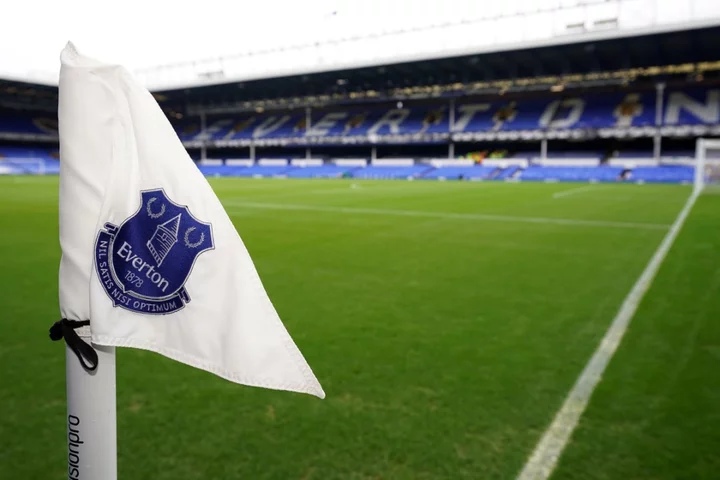
Everton agree takeover deal with American investment firm 777 Partners
Everton owner Farhad Moshiri has signed an agreement with 777 Partners for the American investment firm to acquire his controlling stake in the club. The Toffees, who are currently 18th in the Premier League table, have had Moshiri as a shareholder since 2016 and majority shareholder since 2018, with his stake accounting for 94.1 per cent. He said in a statement from the club: “The nature of ownership and financing of top football clubs has changed immeasurably since I first invested in Everton over seven years ago. “The days of an owner/benefactor are seemingly out of reach for most and the biggest clubs are now typically owned by well-resourced PE firms, specialist sports investors or state backed companies and funds. “I have been open about the need to bring in new investment and complete the financing for our iconic new stadium at Bramley-Moore Dock, on the banks of the Mersey, which I have predominantly financed to date. I have spoken to a number of parties and considered some strong potential opportunities. “However, it is through my lengthy discussions with 777 that I believe they are the best partners to take our great club forward, with all the benefits of their multi-club investment model. “As a result of this agreement, we have an experienced and well-connected investor in football clubs who will help maximise the commercial opportunities, and we have secured the complete financing for our new stadium, which will be the critical element in the future success of Everton. Today is an important next step in the successful development of Everton and I look forward to closely following as our club goes from strength to strength. It is through my lengthy discussions with 777 that I believe they are the best partners to take our great club forward, with all the benefits of their multi-club investment model. Farhad Moshiri “Of course, none of this could have been achieved without the hard work of everyone at the club. From our team at the training ground, our commercial and support teams through to matchday employees, I extend my sincerest gratitude. “And to our fans, the last few years have been challenging but you have supported the club through it all and consistently been our 12th man. You are the best fans and deserve success.” Everton said closing of the transaction is expected to occur in the fourth quarter of 2023 and remains subject to regulatory approval, including from the Premier League, the Football Association, and the Financial Conduct Authority. 777 currently own, or part own, Genoa, Standard Liege, Hertha Berlin, Vasco de Gama and Melbourne Victory and the London Lions basketball team and British Basketball League. The group had been in talks earlier this summer over a partial investment in Everton, only for rivals MSP Sports Capital to enter into an exclusivity agreement with Moshiri. With that agreement ending after that potential investment fell through over repayments to existing lenders – although a £100million loan to help finalise the completion of a new stadium at Bramley-Moore Dock was agreed – 777 re-entered the picture and are now set to make a full takeover. 777 founder and managing partner Josh Wander said: “We are truly humbled by the opportunity to become part of the Everton family as custodians of the club, and consider it a privilege to be able to build on its proud heritage and values. “Our primary objective is to work with fans and stakeholders to develop the sporting and commercial infrastructure for the men’s and women’s teams that will deliver results for future generations of Everton supporters. “As part of this, we are committed to partnering with the local community over the long-term, working on important projects such as the development of Bramley-Moore Dock as a world class stadium venue, allowing thousands more Evertonians to attend our home matches and contribute to the economic and cultural regeneration of Merseyside.” Friday’s announcement means that Bill Kenwright’s tenure as Everton chairman – a role he has had for 19 years – is likely to come to an end. In June chief executive Denise Barrett-Baxendale, chief finance officer Grant Ingles and non-executive director and former striker Graeme Sharp departed the club in the wake of numerous supporter protests, but Kenwright, a target for fans’ anger, accepted Moshiri’s request to remain. Read More Charity boss speaks out over ‘traumatic’ encounter with royal aide Ukraine war’s heaviest fight rages in east - follow live Callum Wilson extends Newcastle deal Warrington favourites ‘schooled’ in ‘frightening’ wheelchair rugby league clash Talking points as Wales face Portugal looking to secure another bonus-point win
2023-09-15 18:20
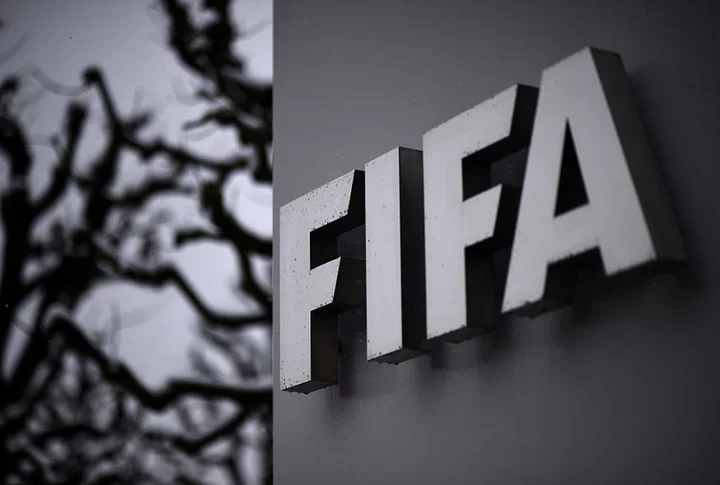
How Fifa is leading the push for football transfers’ biggest change since Bosman
As with so much in modern football, a moment that could transform the entire game is set to come far away from the pitch, and probably in court. Fifa is currently in a battle with most of the game’s agents, although the global governing body would not characterise it as that. Officials insist they are simply engaging in a reform of the industry that “everyone except some agents consider absolutely necessary to address widespread abuses and a system currently fuelled by speculation”. That extends to all of the game’s major stakeholders and the primary European institutions – from the European Commission to the Council of Europe – who have long asked Fifa to “do something”. The position on the other side, most notably the Association of Football Agents [AFA], is that this does indeed come down to European law - but not in the way people at Fifa think. They are strident that the federation has no legitimacy to regulate on this. The view is that representing players is a business outside of the running of the game, and that the provisions for the forthcoming Fifa Football Agent Regulations [Ffar] go against European Union anti-trust law - especially as regards forbidding payment to a supplier above a certain level. The Court of Arbitration for Sport did rule in July that Fifa has legitimacy here, but a referral from a District Court in Germany has brought the case before the European Court of Justice [ECJ]. If this already seems a dry back-and-forth of legal claims, it will all have significant influence on how the very sport is played. Not exactly a new Bosman ruling, but a potentially transformative case all of its own that does come down to far bigger issues such as sport versus business and what any cultural model of football should be. Fifa’s entire position is that it is addressing what is good for the game rather than actually taking on the representative industry. “Good agents are hugely important,” says Jan Kleiner, Fifa’s Director of Football Regulatory. “But since agents act at the very centre of the international football transfer system, Fifa has the authority and responsibility to regulate their activities within that system.” The root motivation of the reform is that the current transfer ecosystem incentivises the movement of players, primarily through the focus on commissions, which accelerates the market and concentrates increasing money at the top end of the game so affecting competitive balance. As justification for this, Fifa relates a few key figures. Every year, players move more quickly and more often between clubs. Every year, 10 times more money is paid to agents than paid to grassroots clubs. Every year, the money spent on transfers grows, as do service fees paid to agents. A 400% increase in the latter over the last decade saw a record of $696.6m (£557.3m) in this window, representing nearly 10% of the total spending on transfer fees. That has gone hand in hand with the growth of so-called “super agencies” and conglomerations, the largest of which is CAA Stellar. The current conditions are seen as perpetuating their domination. Pointedly, as regards big agency domination, even smaller agencies and independents dispute that. They say Fifa’s plans will merely strengthen the power of the “supermarket model”, since the larger companies will be able to weather the greater costs. There is also an insistence one of many unintended consequences will be the entry of more unscrupulous agents due to a willingness to offer what other representatives won’t. The view of one lawyer working with the AFA is that the idea it is agent commissions driving the market is “beyond making any sense”. All of the demand comes from the clubs. They are willing to pay the players so much as part of what has become a financial arms race, and agents merely mediate this. There is also a belief that many of the economic issues that Fifa describe also come from systemic dysfunctions and inequalities in football’s ecosystem, that any problems with agents are only a symptom of. “People read cartoon descriptions of agents from rare transfers that bear no relation to the actual reality of the industry,” one prominent agent privately argues. The fact that the AFA’s legal challenge against the regulations takes place in the last 10 days of September has limited the ability of many involved to speak openly on this. That comment still points to one of the many tensions at the core of this. There are then separate but bigger concerns about how the current system has brought reports of unethical and criminal behaviour, as well as cases of abuse and even human trafficking. With the matter going before the ECJ, Fifa is confident the European judges will understand the specificities of the football industry. The agents are concerned Fifa doesn’t understand their business. “They don’t know the specifics because they only see the surface,” was one response. This is a shared view even among agents who despise each other – a common enough theme – although some recognise a need for reform. This is where Fifa would rebut the idea it is ignorant to the business. It points to a five-year consultation process that involved FifPro, the European Club Association, the World Leagues Forum as well as member associations and confederations, and “a large number of agents and agent representative organisations”. Fifa insists that feedback is overwhelmingly positive, even from agents and agent organisations. The head of one major football body insists the requirement for better agent regulation is “inarguable” and unanimous, and many would point to how all of the major American sporting associations have the same rules that Fifa is trying to introduce, including almost identical caps on commission. Against that, high-profile agents say there was “a lack of invitation” and that there has “never been any public disclosure of these consultations”. Fifa expressly states this is factually wrong, and that there was both invitation and disclosure as illustrated on their website. Sources within the global body argue that all representative organisations were invited but some of the biggest agents just refused to engage, and that this is now seen as a litigation strategy to delegitimise the entire process. Either way, if Fifa has succeed, their reforms will bring the following: The establishment of a licensing system, involving an exam A requirement for agents to provide full transparency towards clients about payments they receive The payment of agent service fees via the Fifa Clearing House, as a measure against financial crime and to protect financial integrity The prohibition of multiple representation, so an agent can only work for any one party in a transaction Stricter regulations for the representation of minors The establishment of a mandatory service fee cap, to avoid excessive financial incentives and conflicts of interest It is the last of those that has provoked the fiercest dispute from agents, beyond the opposition to the basic premise of Fifa regulating. The cap is being described by lawyer Philip Wehler as a “hard-core, anti-competitive measure fixing purchase prices” that represents a “violation of EU anti-trust laws”. Fifa’s position is that to protect the functioning of its transfer system in line with its 2001 agreement with the European Commission, a cap is necessary to reduce existing financial incentives which promote player movement. It is also said that the cap is a pro-competitive measure, because lump-sum commissions have such a destabilising effect on the economic make-up of the game. Aside from how they incentivise movement, only a handful of clubs can pay the £20m minimum commission required for most top talent, further concentrating that talent among six to eight teams. There is also the argument that the very nature of modern football ensures that the more money that swirls around the more player wages at a narrowing top end in an escalating arms race. Fifa wants to reduce transfer incentives and nuance how service fees are paid, so they are proportionate to salary. This would in essence mean the interests of player and agent are more aligned, increasing transparency regarding what footballers pay for. As it stands, Fifa posit, commission on fees cover a wide range of service that agents otherwise tell their players is “for free”. A series of agents spoken to for this article say that reflects Fifa’s misunderstanding of the business. For one, they argue, service fees aren’t just for transfers. They’re also for contract extensions, and the majority of good agents would never push a move their client doesn’t need, since this would be bad for everybody in the long term. What’s more, all modern agents right down to independents are expected to have office premises, player care staff, media, social media and scouts, not to mention a lot of expenses on travel. All of this is to serve the player and “has a direct correlation to performance”. Fifa admits it’s a “cultural shift” to charge players for this at base, but that it’s a more “transparent and fair” way of doing business. “It is difficult to understand why agents would not be able to issue transparent invoices to their clients for all additional services, which are not subject to the cap,” Kleiner says. Agents would respond that the cultural shift would be agent income being restricted at the exact point players expect greater service. That could also lead to the unintended consequence of further incentivising transfers since some agents would instead just seek more commissions. “It’s like a streaming service saying if artists aren’t happy with their royalties they can do more concerts,” one agent says. “Could they do it? Yes. Is it a solution or even rational? No.” The argument is again that super-agencies could more easily absorb this. Fifa would also point out that the cap wouldn’t apply to sponsorship or any endorsement deals. The agents say that the vast majority of players – right up to mid-table clubs in even the Premier League – don’t have commercial appeal so would end up being the ones punished. As regards the question of representing multiple or all parties in the same transfer, the motivation behind this is pure transparency and to avoid a conflict of interests. The argument on the other side is that it’s simply what the relevant parties agree. Fifa would say it is important because it could theoretically mean players don’t have the same level of information as their agents. There is also pushback on the point of how more money goes to service fees than grassroots since they are seen as two unrelated areas. Agents say they only take a percentage of a player’s salary, and that has nothing to do with money coming from or going to grassroots. It is viewed by one representative as a false comparison to further a caricature. Fifa would counter that it is highly corrosive for the game’s solidarity if so much money leaves its ecosystem, and that it is necessary for redistribution mechanisms to function. The argument there is to ensure less money goes to off-shore accounts or impenetrable tax havens, with that increasing financial transparency and integrity. Agents based in England argue there is already a workable clearing house in the country. Fifa would respond they have to take a “global perspective” and create a level playing field, which would consequently mean the changes for those in England wouldn’t be that dramatic. One argument outside England, however, is that amounts to control of a money-flow that further facilitates uncompetitive price-fixing. Even on the issue of minors, agents would dispute Fifa’s position, insisting they require representation the most. The reality will still be that clubs want to sign the most promising young players. An absence of representation could just lead to more unscrupulous actors or illegal payments. Fifa’s position is that the rules do not prohibit representation of minors, but set a reasonable and proportionate framework. If all this sounds like the “wild west” on a market that Fifa says is a description from an agent, another counterpoint is that this description only arose after 2015. That was when the global governing body decided to deregulate the agency business, which agents argued against, and points to why they should be listened to now. Fifa actually admits that was “a mistake by the old administration”. “But we could have continued to do nothing,” one source says. “Those agents who want to work in a transparent manner have nothing to fear.” The issue of licensing is the one area where there is common ground. Otherwise, differences abound. Many will be laid out in the legal challenge in England, where some high-profile agents will be cross-examined. A decision on that will come at some point before the new regulations are implemented as planned on 1 October. The one country that could be exempted is Germany, due to a successful provisional injunction and an appeal by Fifa that won’t be heard until 24 January. That could bring a “scattered landscape” that the governing body would have to work around, and could create loopholes, before a potential hearing in front of the ECJ and regional courts. Petros Mavroidis, a Greek-Swiss professor who has worked on football issues right up to Financial Fair Play, believes the entire case is “going to be instructive” for the future of the game. “It went before CAS and it was decided that Fifa has the right to regulate football agents. Now is the similar case before a German court that will end up before the European Court of Justice. “If I go by past evidence, the European Court of Justice doesn’t pay too much heed to CAS. “If this happens, I would expect the court to start and ask who has the right to regulate agents. Have member states transferred this right to Uefa/Fifa? And if yes, let’s assume yes, does Fifa observe European law when regulation agents? If no, it’s the end of the story. Fifa cannot regulate, and leave it at that. “It’s very difficult to predict what will happen but, no matter what, even if the court says Fifa can regulate, it will say it has to observe EU law. That means observing competition law, so the question will be can Fifa impose price regulation.” Fifa says it comes down to a simple motivation for them. “Ultimately, you always have to look at the counter-factual,” one source says. “What would happen if you didn’t implement these rules? Inequality increases in the game, existing problems become worse and worse, and regulation becomes inevitable.” Read More Sarina Wiegman wants focus on Spain’s World Cup winners and not Luis Rubiales Sarina Wiegman ‘worried’ about schedule as England prepare for Nations League Luis Rubiales refuses to apologise to Jenni Hermoso over ‘consensual’ kiss Luis Rubiales resignation has to be ‘the start of something’, says Georgia Stanway Jenni Hermoso complaint against Luis Rubiales filed with Spain’s high court Stephen Kenny refuses to bemoan luck following Evan Ferguson injury
2023-09-14 17:17
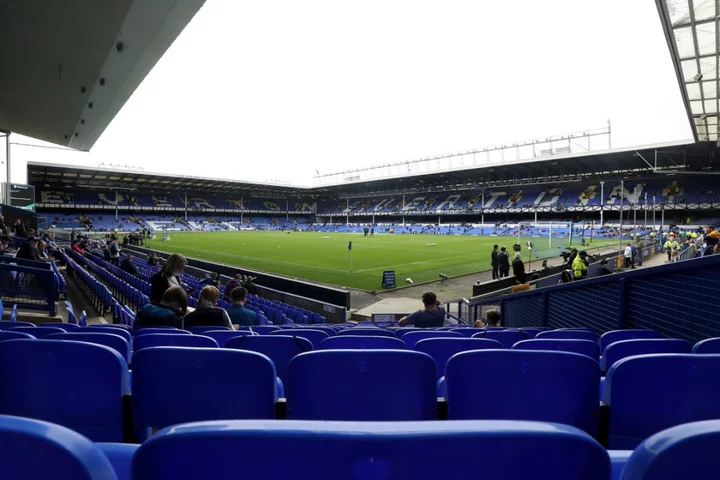
US investment firm 777 Partners considering Everton majority purchase – reports
American investment firm 777 Partners have returned to the negotiating table at Everton but are now reportedly considering a majority purchase. The group had been in talks earlier this summer over a partial investment only for rivals MSP Sports Capital to enter into an exclusivity agreement with Toffees owner Farhad Moshiri. With the agreement now over after that potential investment fell through over repayments to existing lenders – although a £100million loan to help finalise the completion of a new stadium at Bramley-Moore Dock was agreed – it appears 777 have re-entered talks. However, reports suggest it is with a view to a full takeover of the club. Everton have been seeking outside investment for some time in order to free up finances to complete the new stadium. In January Moshiri, who has spent more than £500million on players since becoming the majority shareholder in 2016, said the club was not up for sale but admitted he was exploring funding options to cover the final stages of the £550m-plus build at Bramley-Moore which will is set to see the ground opened next season. The 777 group, which did not comment when contacted by the PA news agency, currently own, or part own, Genoa, Standard Liege, Hertha Berlin, Vasco de Gama and Melbourne Victory and the London Lions basketball team and British Basketball League. Read More Charity boss speaks out over ‘traumatic’ encounter with royal aide Ukraine war’s heaviest fight rages in east - follow live
2023-09-12 19:53
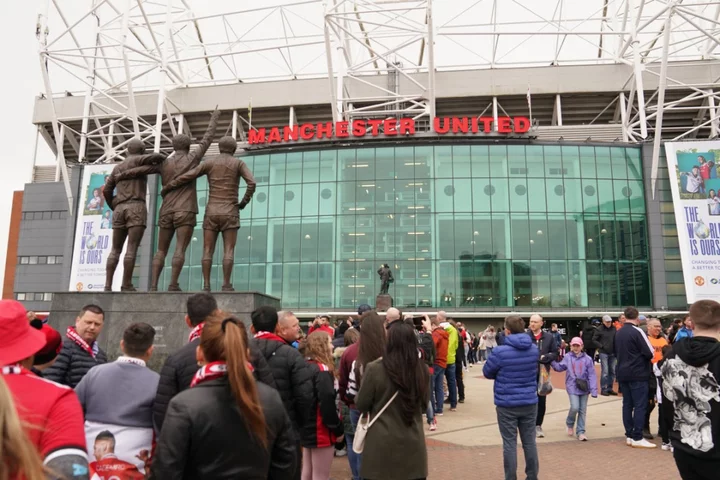
Manchester United share price crashes by £500m after report Glazers may not sell
Manchester United’s valuation on the New York Stock Exchange plummeted by more than £500million in the wake of a report that the Glazers have decided not to sell. Nine months ago the owners announced a full sale was among the options being considered as part of a strategic review at the Old Trafford club. Sheikh Jassim and Sir Jim Ratcliffe made offers to buy United, yet the interminable potential takeover process rumbles on as fans continue to protest against the Glazers. Hopes of a full sale were seemingly dashed when the Mail on Sunday reported that the owners are taking the club off the market and will try to sell again in 2025. That report led to more than £500m being knocked off United’s share price on Tuesday. After the New York Stock Exchange reopened following the Labor Day holiday, the price plummeted from 23.66 US dollars (£18.83) to 19.35 US dollars (£15.40) by close. United’s market capitalisation – the company’s worth on the stock market – was left at 3.15billion US dollars (£2.5billion) after the 18.22 per cent drop. Earlier this year the Glazer family reportedly valued United at £6bn. Read More Charity boss speaks out over ‘traumatic’ encounter with royal aide Ukraine war’s heaviest fight rages in east - follow live
2023-09-06 15:54

Miserable CFB weekend for Spectrum customers prompts all-out battle with ESPN
ESPN has been blacked out for Spectrum users since Labor Day, making college football fans miss out. With the blackout not ending soon, what does this mean?
2023-09-06 06:17
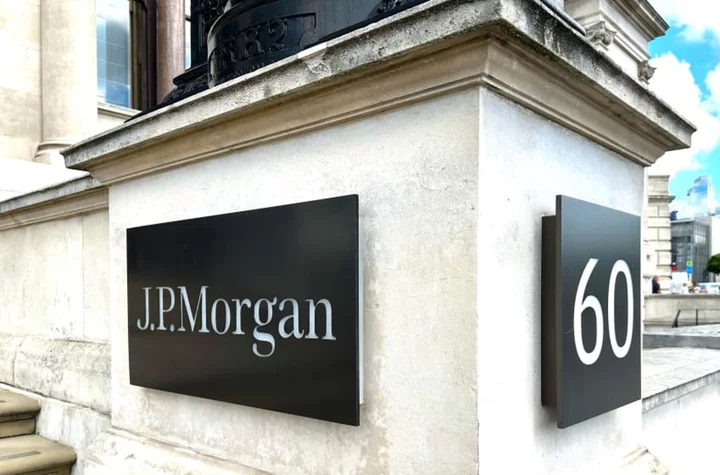
Realignment is not the only drastic change that could be coming to college sports
With private equity firms sniffing around college football and basketball opportunities, what does the potential influx of for-profit entities mean for college athletics?
2023-09-04 04:45
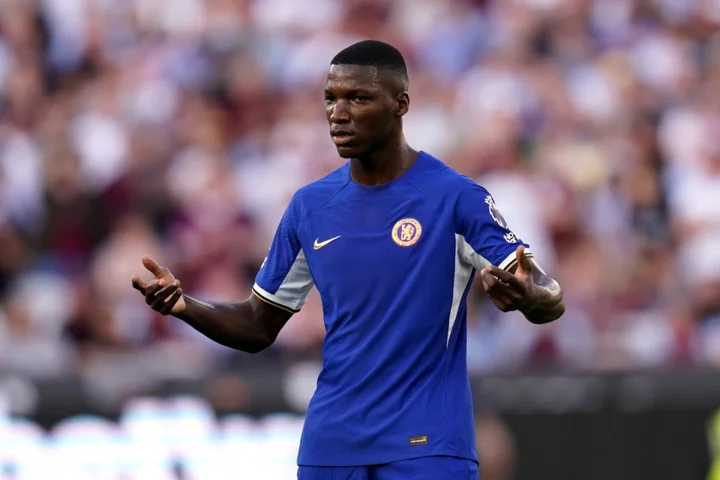
Premier League clubs take summer spending to nearly £2billion with week to go
Premier League clubs have spent a fraction under £2billion in this summer’s transfer window already – with a week of business still to go. Data released by financial services firm Deloitte showed that as of 12pm on Friday top-flight teams’ spending had reached £1.95bn. That is already higher than the total, record figure calculated by Deloitte for last summer – £1.92bn. Deloitte said spending was £500m higher this summer compared to the same point last year, suggesting the final total could be around £2.5bn. Two of this summer’s deals so far have been worth over £100m – Arsenal’s signing of Declan Rice from West Ham and Chelsea’s recruitment of Moises Caicedo from Brighton. Premier League clubs’ net spend is calculated at £825m by Deloitte, 25 per cent lower than last summer (£1.1bn), which the firm attributes to a more active global transfer market. Calum Ross, assistant director in Deloitte’s Sports Business Group, said: “For the second year in a row, the summer transfer spending by Premier League clubs has surpassed the previous record and looks set to rise above £2bn for the first time before the window closes on September 1. “This sensational level of spending appears to be the new norm for Premier League clubs. They are generating unprecedented levels of revenue, which for some clubs is combined with the receipt of significant investment from new ownership. “As we approach the end of the transfer window, it remains imperative that clubs manage the buying and selling of players carefully and remain compliant with relevant financial regulations. “Sustainable business plans are essential to support continued competitiveness and long-term growth.” Chelsea’s spending in the last three windows – since a consortium led by American businessman Todd Boehly took charge – is believed to be edging close to the £1billion mark.
2023-08-25 20:18

UK's BAE Systems to buy Ball Aerospace for about $5.55 billion
(Reuters) -British defence group BAE Systems said on Thursday it agreed to buy Ball Aerospace business from Ball Corp for
2023-08-17 14:27

BAE in Talks to Buy Ball’s $4 Billion Aerospace Unit
BAE Systems Plc is in talks about a possible acquisition of Ball Corp.’s aerospace division, people with knowledge
2023-08-16 22:50

Industrial Wind Power Company One Energy to go Public Via SPAC
One Energy Enterprises Inc., a renewable power company focused on industrial clients, is going public via a blank-check
2023-08-15 08:20
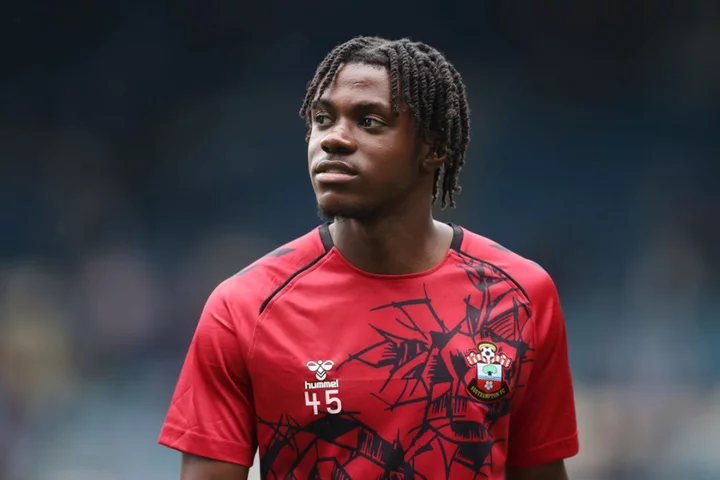
Chelsea negotiating for Romeo Lavia transfer to take Todd Boehly’s spending past £900m
Chelsea are negotiating a fee of £50m with add-ons for Romeo Lavia, after the midfielder signalled his intention to leave Southampton for Stamford Bridge rather than Liverpool. The Anfield club had earlier on Monday had a £60m bid accepted for the 19-year-old and, while he was interested in going north, moving to London has proved a more favourable option. There was some frustration given that it was felt Liverpool could have had a deal done last week, but Southampton absolutely refused to drop their asking price from £50m, in what has proved a seller's market. The signing will take Chelsea's expenditure to over £900m gross since the takeover in May 2022, and raised questions over how they will meet Financial Fair Play requirements. While the spending has inevitably been the subject of a lot of discussion at the top levels of clubs, just as it has been in the wider game, there has been no contact with the Premier League about it. Chelsea are likely to still have a number of outgoings in the two weeks left of the window - although that does raise the issue of clubs knowing they need to sell. The Premier League are expected to change their rules to bring them in line with Uefa's, closing a loophole that allows transfer fees to be spread over a longer-period and setting a limit at five years, but that will not affect the last year's spending. The regulations are also dependent on the year-end date for signings and which year the transactions go into. Chelsea completed the signing of Moises Caicedo for an initial £100m from Brighton earlier on Monday. Read More Chelsea end Caicedo saga by signing Brighton midfielder for initial £100m Chelsea’s £1bn spending spree still isn’t enough Chelsea and Liverpool trial football without defensive midfielders
2023-08-15 05:29
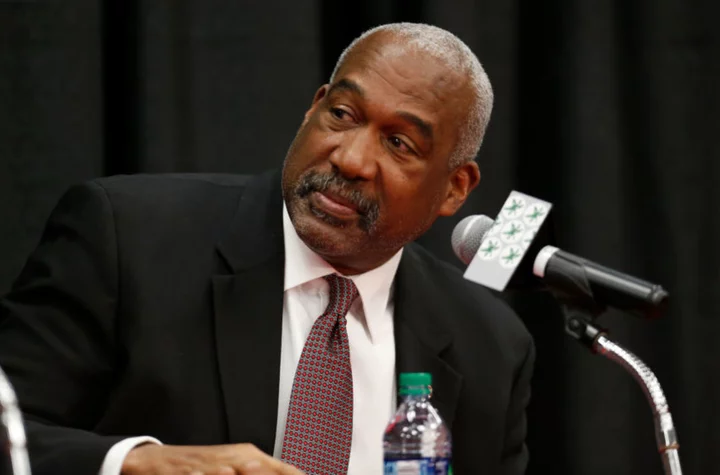
Ohio State AD reveals the one key factor that led to Pac-12 demise
Ohio State athletic director Gene Smith explained why the Big Ten was eventually able to add Oregon and Washington, resulting in the hostile takeover and eventual death of the Pac-12.Mo money, mo problems...It was all a dream. I used to watch Pac-12 After Dark! Now we are left with a Pacific...
2023-08-12 01:20
